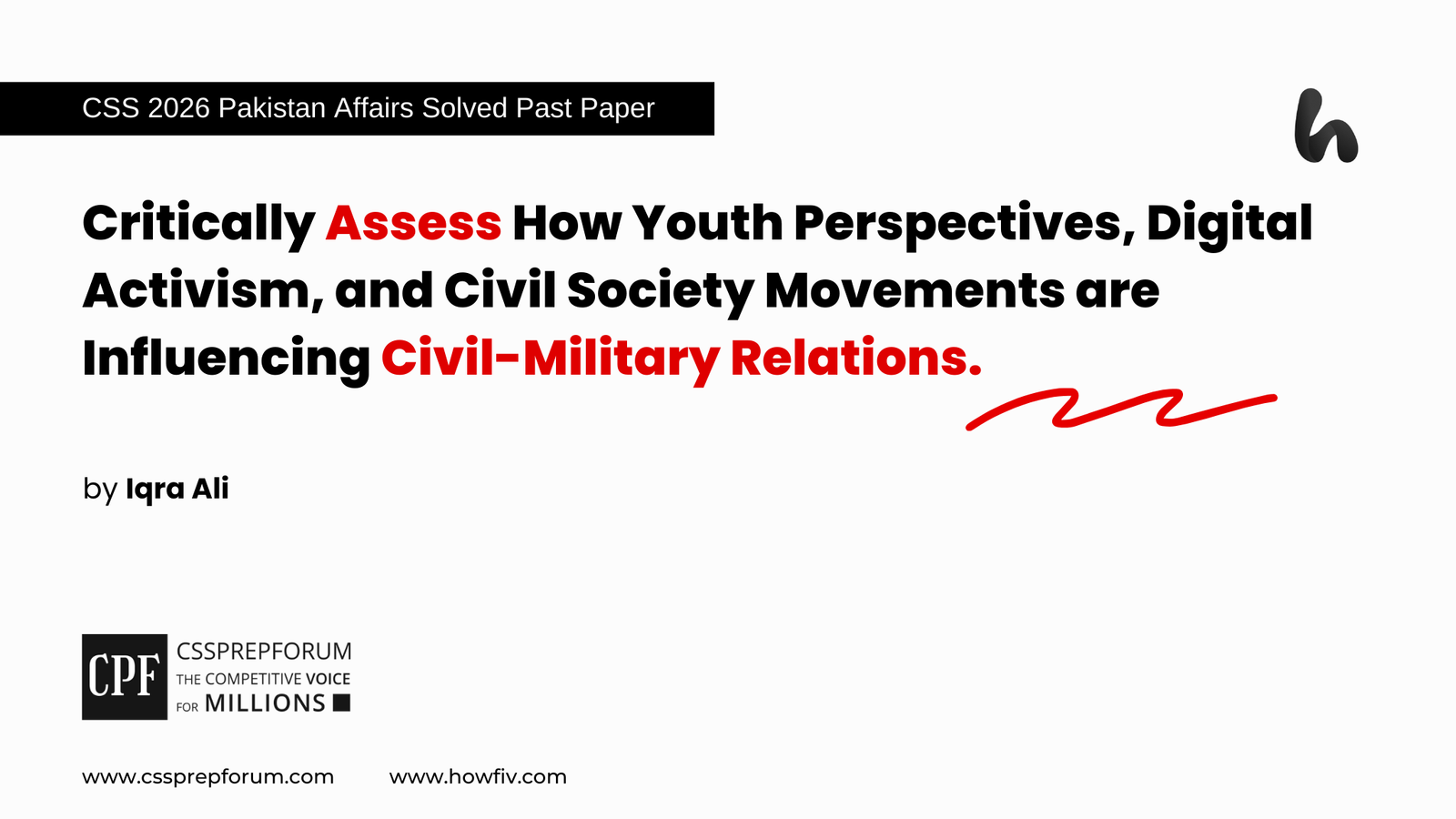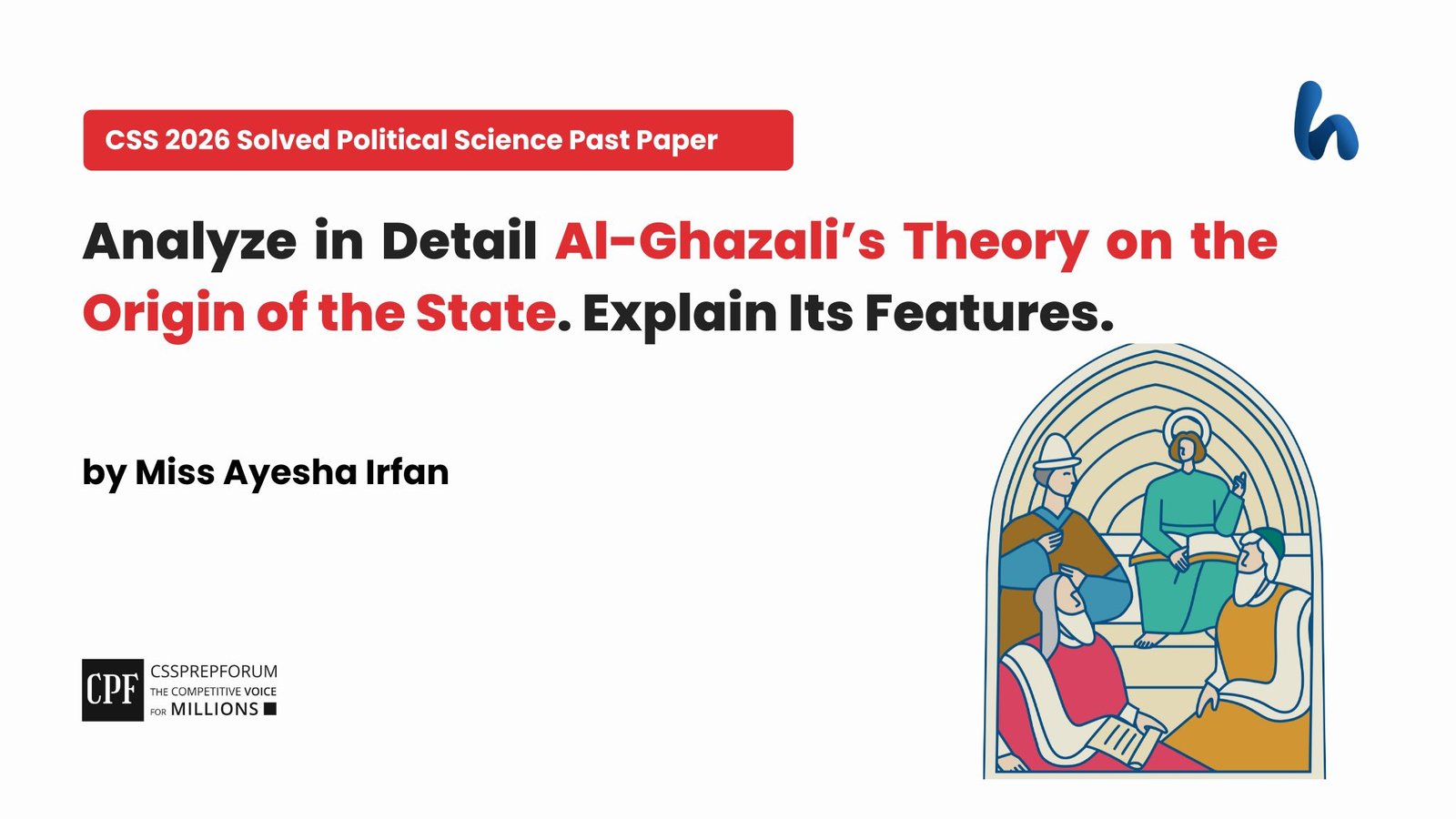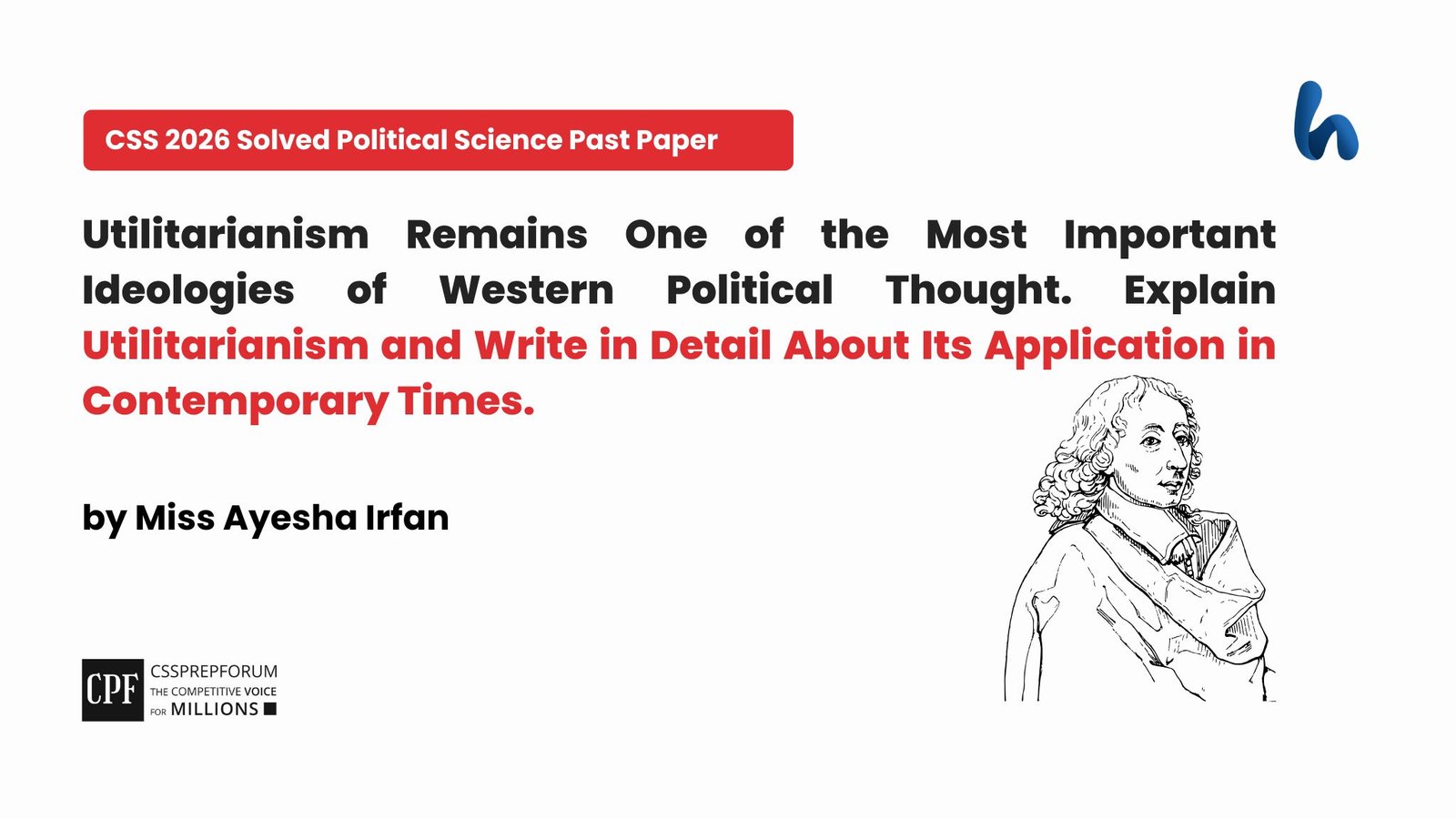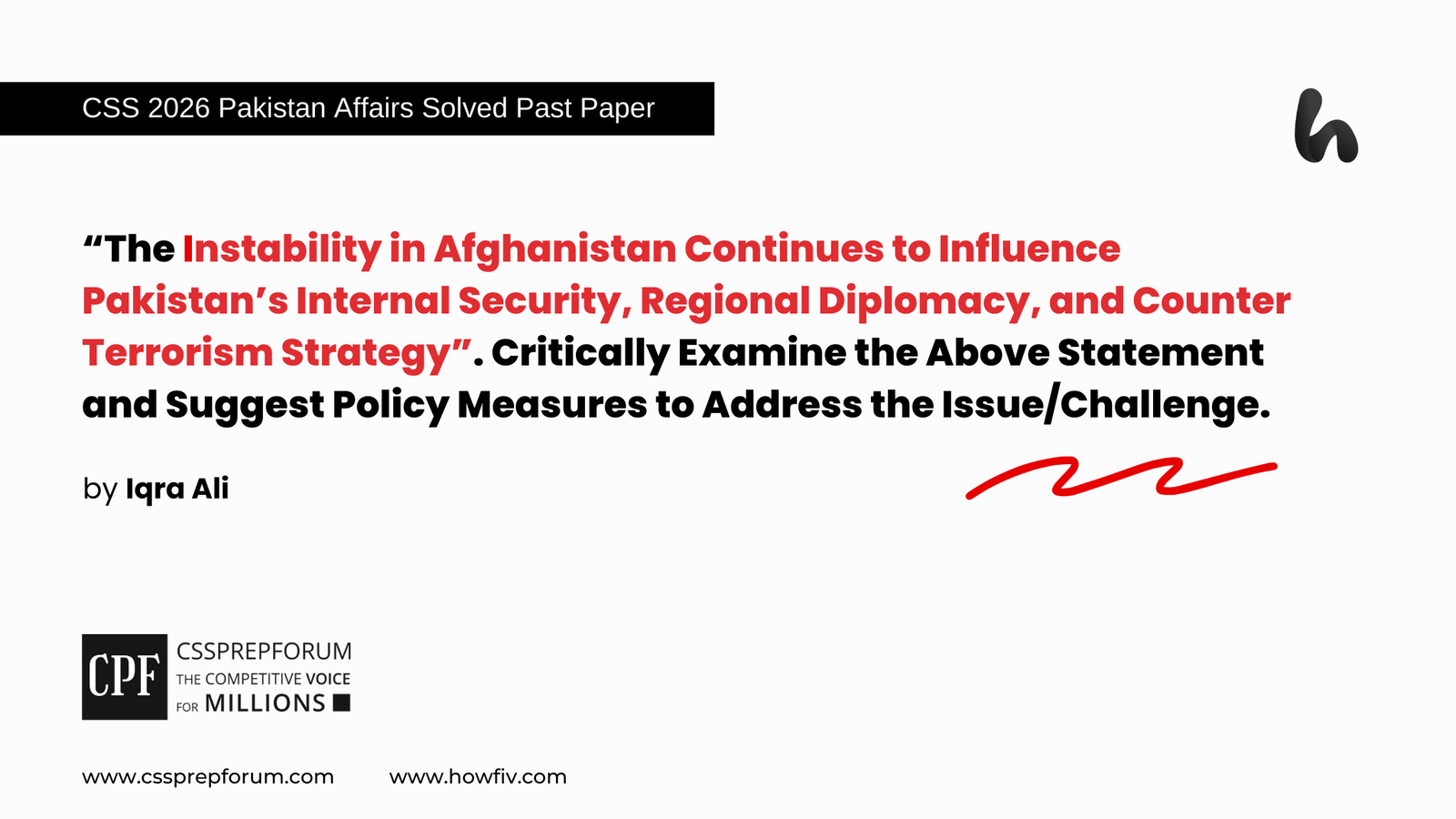CSS Solved Criminology Past Paper CSS Special 2023 | Strain Theory of Deviance and Pakistan

Question Breakdown
In this question, the examiner has demanded a detailed discussion on the Strain Theory of Deviance by Robert K. Merton. The question has two main parts that require an explanation, comprising the Strain Theory of Deviance by Merton and a discussion of the theory from Pakistan’s perspective to promote social harmony. To make the answer outstanding, one can add scholarly definitions, examples, mainly from Pakistan, and various theories linked with it. Despite this, one ought to explain how the description of the strain theory of deviance can help promote social harmony in Pakistan. Moreover, the quality of the answer can be accentuated by adding diagrams, relevant quotations, and flow charts.
Outline
1-Introduction
2-Strain Theory of Deviance
3- Possible Strain Factors Faced by the Populace of Pakistan
- ✓Economic Disparities leading to Perceived Injustice
- ✓Disengagement of Individuals from Societal Objectives due to Insufficient Educational Facilities
- ✓Rebellious Mindsets of People due to Social Inequalities
- ✓Weak Institutions and Corruption Fostering Deviant Behaviors
4-Modes of Adaptation to Overcome Strain to Meet the Established Goals
- ✓Conformity
- ✓Innovation
- ✓Ritualism
- ✓Retreatism
- ✓Rebellion
5-Strategies for Promoting Social Harmony in Pakistan
- ✓Engaging the Members of the Community
- ✓Making Economic Progress
- ✓Empowering the Youth
6-Critical Analysis
7-Conclusion

Answer to the Question
Introduction
Reflecting on the capitalist society of the United States of America, the Strain Theory states how marginalization contributes to increased strain and stress amongst individuals, thus leading to criminal activities. In the twentieth century, Robert K. Merton introduced the Strain Theory of Deviance, which delineates that specific goals are set by a society, which are culturally recognized. Moreover, society has also defined institutionalized means to acquire those objectives. A myriad of social, economic and political challenges in Pakistan leads to stress; therefore, achieving culturally defined goals via legitimate means becomes troublesome for the general public. Consequently, people indulge in criminal acts. Fostering peace and harmony in Pakistani society necessitates the introduction of educational and economic reforms and minimizing discrimination.
Strain Theory of Deviance
A sociological and criminological viewpoint referred to as the “Strain Theory of Deviance” states how social and economic factors, such as insufficient financial resources and an inadequate education system, can lead to criminal activities. In 1938, a renowned sociologist, Robert K. Merton, put forth this theory, which posits that societal structures define certain objectives that pressure the populace as it can be challenging for everyone to attain those goals. Consequently, negative emotions, specifically aggression and frustration, begin to surface among individuals when they find the culturally defined objectives unattainable.
| Types of People | Accept Culturally Recognized Goals | Accept Institutionalized Means |
| Conformists | ✓ | ✓ |
| Innovatives | ✓ | × |
| Ritualists | × | ✓ |
| Retreatists | × | × |
| Rebellions | ✓/× | ✓/× |
Possible Strain Factors Faced by the Populace of Pakistan
Pakistan experiences several socio-economic issues similar to those of other developing nations, such as high rates of poverty, unemployment, and income inequality, in addition to limited access to high-quality healthcare and education. As a result of these conditions, numerous individuals face difficulties while achieving legally sanctioned objectives that might lead to societal unrest and, ultimately, deviant behaviour.

Economic Disparities Leading to Perceived Injustice
When the people of Pakistan face stress as a result of economic inequalities, it fosters innovation in aberrant ways. People who are deprived of job security often engage in illicit trade, criminal offences, and corruption in order to achieve financial success. For example, it was easy for militant organizations like Tehrik-i-Taliban Pakistan (TTP) to mobilize the youngsters of tribal areas of Pakistan. According to the Human Needs Theory by John Burton, when people are deprived of certain human essentials, they become frustrated and, thus, practice violence. The people of tribal areas were deprived of fundamental needs. As a result, the wealth and social status acquired through terrorist activities fascinated them.
In order to minimize deviant innovation, implementing robust economic reforms is crucial. All citizens may be offered equal opportunities like microfinance programs, job creation programs and vocational training.
Disengagement of Individuals from Societal Objectives due to Insufficient Educational Facilities
In Pakistan, the education system faces a number of challenges. Millions of children in the country are out of school, particularly girls. Despite this, teachers recruited in schools lack proper training, so the classroom environment is often not conducive. Consequently, attaining culturally defined goals through legitimate means becomes troublesome for most of the populace. When people are deprived of high-quality education and employment opportunities, they disengage from societal objectives drastically, which is known as retreatism. Besides, ritualism is also envisioned in which people do not have any hope of achieving their goals; however, they still go through the processes.
In order to minimize the gap between goals defined by society and legitimate means, investing in the training of teachers, education infrastructure, and scholarship programs for students from disadvantaged backgrounds is paramount.
Rebellious Mindsets of People Due to Social Inequalities
People tend to reject the established social structures and endeavour to create new institutions when they face social injustice and discrimination. This is known as rebellion, according to Merton’s Strain Theory. In Pakistan, for example, women and certain ethnic groups are discriminated against and deprived of fundamental needs. By fostering social inclusion and protecting the rights of discriminated communities, marginalization can be lessened. It entails sponsoring development initiatives for communities, ensuring political representation and implementing anti-discriminating legislation.
Weak Institutions and Corruption Fostering Deviant Behaviors
The Corruption Perception Index 2023 by Transparency International ranks Pakistan 133rd out of 180 countries, and hence, deviant behavior is envisioned as a crucial strategy for success in all fields. This is because the extremely high levels of corruption in the political sphere have created such an atmosphere that people prefer avoiding legitimate means to get their work done.
“Without strong watchdog institutions, impunity becomes the very foundation upon which systems of corruption are built. And if impunity is not demolished, all efforts to end corruption are in vain.” – Rigoberta Menchú, Nobel Prize Laureate
Thus, strengthening state institutions and fostering transparency in government is paramount to mitigating state corruption.
Modes of Adaptation to Overcome Strain to Meet the Established Goals
Society emphasizes certain objectives of accomplishment, such as wealth and social status. Furthermore, it has also defined legitimate means to acquire these goals, such as education and employment. People feel stress or strain when their goals conflict with the means to achieve those goals. Robert K. Merton has enumerated five ways through which people adjust to this strain: conformity, innovation, ritualism, retreatism, and rebellion.
Conformity
Conformity can be defined as accepting methods and objectives. Individuals who accept the goals defined by society endeavour to meet societal expectations through legitimate means. For instance, youth in Pakistan face a number of socio-economic challenges and lack adequate education facilities; however, many students strive to acquire success and respectable jobs via education. Moreover, various entrepreneurs in Pakistan have made a name for themselves in the information technology and software industry.
Innovation
On the other hand, acknowledging the objectives but utilizing dubious methods to reach them is called innovation. For instance, many people in Pakistan accept societal goals; however, due to corruption instilled in the structures, they tend to resort to corrupt practices. Furthermore, through money laundering and other organized crimes, people hide their illegal source of money and tend to achieve the objectives defined by society through illegitimate means.
Ritualism
Ritualism refers to steadfastly upholding the methods while rejecting the ends. For instance, some lower-ranking government employees in Pakistan abide by the rules and regulations; however, they do not aim to achieve a higher status; instead, they just focus on maintaining their position.
Retreatism
Isolating one from society and rejecting the ends as well as the methods is known as retreatism. People are no longer willing to meet societal expectations, and they denounce the institutionalized means to achieve certain goals. For instance, youngsters in Pakistan engage in substance abuse due to various socio-economic and political factors like unemployment, poverty, lack of education, political marginalization, family discord, societal pressure, etc. They reject the goals defined by society along with the institutionalized means.
Rebellion
Rebellion refers to pushing for new objectives while rejecting the ones currently being pursued. For example, political and social movements in the Khyber Pakhtunkhwa and Balochistan regions of Pakistan demand structural changes to minimize marginalization and seek justice. The Pashtun Tahafuz Movement (PTM) is a social movement that carries out demonstrations and raises its voice to end discrimination against Pashtun communities.
Strategies for Promoting Social Harmony in Pakistan

Engaging the Members of the Community
First, engaging the members of communities in negotiations as well as participatory decision-making can assist them in aligning goals set by society with the requirements and aspirations of the populace. Conflict between people and stress can be minimized through community-based initiatives that strengthen friendship and camaraderie and deal with local problems.
Economic Progress
Next, promoting economic progress via equitable and sustainable development can create more opportunities for people to thrive legally.
Empowering the Youth
Finally, efforts ought to be made to empower youth by improving education and employment opportunities so that youth’s susceptibility to deviant behaviour can be reduced. Initiatives that nurture youth leadership, along with social engagement, are beneficial for youngsters as they inculcate a feeling of belonging and affinity among individuals, which allows them to realize their responsibilities and obligations.
Critical Analysis
Strain Theory of Deviance by Robert K. Merton explains how culturally defined goals and institutionalized means to achieve those objectives can cause stress among individuals, leading to crimes. In Pakistan, people are facing a myriad of socio-economic and political challenges, such as increased poverty, unemployment, insufficient resources, and lack of access to high-quality education. In the heterogeneous country, several ethnic groups are deprived of fundamental needs and feel marginalized. According to the Relative Deprivation Theory by Robert Tedd Gurr, when an unprivileged group or individual perceives injustice and feels deprived compared to a relatively privileged group, it can cause conflict. Therefore, to promote social integration and harmony, introducing structural reforms and providing equitable opportunities are crucial.
Nonetheless, despite the deprivation of basic needs, there are several other reasons for crime as well. For instance, people lack tolerance and have developed extremist mindsets, due to which mob lynching is envisioned in cities like Sialkot, Lahore, and Faisalabad. Besides, illegitimate means are used by people without having a specific goal. For example, when a member of a Pashtun family kills a member of another Pashtun family in tribal areas of Pakistan, then, in retaliation, a girl is married to a member of the victim’s family (Vanni). It is a crime and an example of cultural violence; however, there is no objective behind it. Instead, it is just for revenge.
Conclusion
To cap it all, the Strain Theory of Deviance, proposed by Merton, provides a framework for understanding the root causes of deviance in Pakistani society. Moreover, the theory delineates the contribution of societal pressure and emotions to criminal activities. By addressing the structural issues causing strain, Pakistan can promote social cohesion and mitigate the chances of aberrant behaviour. For this purpose, tackling issues like economic disparities, social inequality, corruption, and insufficient resources and opportunities is paramount. These issues can be dealt with through the implementation of inclusive policies, the generation of equitable opportunities, and the integration of communities in the process of development.

CSS Solved Past Papers’ Essays
Looking for the last ten years of CSS and PMS Solved Essays and want to know how Sir Kazim’s students write and score the highest marks in the essays’ papers? Then, click on the CSS Solved Essays to start reading them.
CSS Solved Essays
CSS Solved General Science & Ability Past Papers
Want to read the last ten years’ General Science & Ability Solved Past Papers to learn how to attempt them and to score high? Let’s click on the link below to read them all freely. All past papers have been solved by Miss Iqra Ali & Dr Nishat Baloch, Pakistan’s top CSS GSA coach having the highest score of their students. General Science & Ability Solved Past Papers











